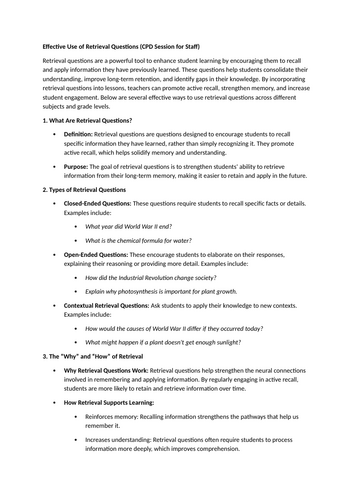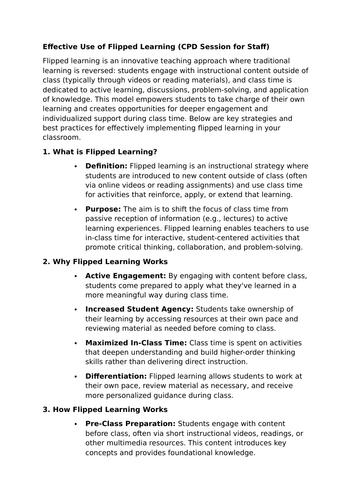
157Uploads
9k+Views
406Downloads
All resources

PSHE - What is Sexual Harassment / Unwanted Sexual Attention? Lesson plan
What is Sexual Harassment / Unwanted Sexual Attention? Lesson plan which has an overview of what what sexual harassment and unwanted sexual attention are, recognize the forms these behaviours can take, and know how to respond appropriately to such situations. Students will also be introduced to

Role Play - Client Centered Therapy (The Humanistic Approach) for A-Level Psychology AS/A2
A word document with clear instructions to carry out a role-play task on client-centred therapy in the humanistic approach with your A-Level Psychology students.
Objective:
To practice the principles of client-centered therapy by role-playing a session between a therapist and a client. The focus is on creating a supportive environment that encourages self-exploration and personal growth.
Instructions:
Divide into pairs:
• One person will act as the therapist, and the other as the client.
• After one session, switch roles so both people get to experience being the therapist and the client.
MORE INFORMATION ON THE SHEET

Role Play - Anger Management for offending behaviour (Forensic Psychology) for A-Level Psychology A2
A word document with clear instructions to carry out a role-play task on anger maangement for offending behaviour (in forensic psychology) with your A-Level Psychology students.
Objective:
Students will participate in a role-play exercise simulating the three stages of anger management therapy used to address offending behaviour: Cognitive Preparation, Skills Acquisition, and Application Practice. The goal is to help students understand how these stages help offenders manage anger and reduce the likelihood of aggressive behaviour.
Instructions:
Divide into Groups of Three:
Each group will have three roles:
• Therapist: The person facilitating the anger management session.
• Client/Offender: The individual who is undergoing anger management.
Observer/Someone who the client can be angry with during role-play: The person who takes notes on how the therapist and client apply the stages
MORE INFORMATION ON THE SHEET

The teacher’s guide to self-care
The teacher’s guide to self-care
Build resilience, avoid burnout, and bring a happier and healthier you to the classroom

Templates for essay plans - 16 markers in A-Level Psychology
Templates for essay plans - 16 markers in A-Level Psychology that can be adapted for any topic/essay title

Instructions for conducting a memory experiment in Psychology
Instructions for conducting a memory experiment in Psychology

100 Cheat Codes/Success Codes for students studying AQA A-Level Psychology
Here’s a comprehensive list of 100 Cheat Codes/Success Codes for students aiming for an A* in AQA A-Level Psychology, specifically aligned with the AQA A-Level Psychology specification. These tips are based on exam feedback, specialist commentary, and proven strategies to help students understand key concepts, optimize their study time, and approach the exam with confidence. These codes are designed to help you master the material and get ahead in your preparation.

Role Play Task: Cognitive Behavioural Therapy (CBT) for A-Level Psychology (Approaches Section - AQA
Role Play Task: Cognitive Behavioural Therapy (CBT) for A-Level Psychology
(Approaches Section - AQA) - But can be used for any exam board and GCSE
Objective:
Students will engage in a role-play exercise to simulate a CBT session, focusing on how this approach is used to help individuals challenge and reframe negative thoughts and behaviours. This will help students understand the cognitive approach to treating mental health issues.
Instructions:
Divide into Pairs or Small Groups:
Each group will consist of two roles:
• Therapist: The person guiding the CBT session.
• Client: The individual seeking help to challenge their negative thoughts and behaviours.
MORE INFO ON SHEET

Effective ways to scaffold for students - CPD / PD for staff
Effective ways to scaffold for students - CPD / PD for staff

Research Methods Quiz / Quizzes for A-Level Psychology (FUN)
Some short quizzes and games to test AS and A2 research methods for AQA A-Level Psychology. These activities will engage students and help reinforce key concepts in a fun, interactive way.

Effective Ways for Teaching to Check for Understanding (CPD Session for Staff
In any classroom, it is essential that teachers continuously assess whether students are grasping the content being taught. Checking for understanding ensures that learning is happening and helps identify any gaps early on. Here are some effective strategies to check for understanding, which can be used across different subjects and grade levels.

Effective Use of Retrieval Questions (CPD Session for Staff)
Effective Use of Retrieval Questions (CPD Session for Staff)
Retrieval questions are a powerful tool to enhance student learning by encouraging them to recall and apply information they have previously learned. These questions help students consolidate their understanding, improve long-term retention, and identify gaps in their knowledge. By incorporating retrieval questions into lessons, teachers can promote active recall, strengthen memory, and increase student engagement. Here are some effective ways to use retrieval questions across different subjects and grade levels.

ADHD (CPD)/Professional Development for Staff
Effective Strategies for Teaching Students with ADHD (CPD Session for Staff)
Teaching students with Attention Deficit Hyperactivity Disorder (ADHD) requires a thoughtful and structured approach that supports their unique learning needs. ADHD is characterized by symptoms such as inattention, hyperactivity, and impulsivity, which can impact a student’s ability to focus, follow instructions, and complete tasks. However, with the right strategies, teachers can create an environment that helps students with ADHD thrive academically and socially. This overview will provide practical strategies for teaching students with ADHD and offer insights into creating an inclusive and supportive classroom.

Effective Ways to Model for Students (CPD Session for Staff)
Modelling is a key teaching strategy that involves demonstrating the skills, strategies, or behaviours you want students to learn. When done effectively, it provides a clear example that students can observe, understand, and replicate. Below are several effective modelling strategies that can be applied across various subjects and grade levels. These strategies can help teachers scaffold learning, make abstract concepts tangible, and encourage active student engagement.

Effective Use of Flipped Learning (CPD Session for Staff)
Flipped learning is an innovative teaching approach where traditional learning is reversed: students engage with instructional content outside of class (typically through videos or reading materials), and class time is dedicated to active learning, discussions, problem-solving, and application of knowledge. This model empowers students to take charge of their own learning and creates opportunities for deeper engagement and individualized support during class time. Here are some key strategies and best practices for effectively implementing flipped learning in your classroom.

Effective Use of Exit Tickets (CPD Session for Staff)
Exit tickets are a simple and powerful formative assessment tool that allows teachers to gauge student understanding at the end of a lesson. They are quick, effective, and provide immediate feedback that can help inform future lessons. By using exit tickets regularly, teachers can adapt their teaching to address any gaps in understanding and ensure that learning objectives are being met. Here are some key principles of using exit tickets effectively and provide practical tips for implementing them in your classroom.

DO NOT BUY Cognition and development: accommodation and assimilation
DO NOT BUY THERE IS NO ATTACHMENT PPT lesson on accommodation and assimilation, can be used for GCSE/A-Level Psychology - any specification.
Great interactive lesson.

dont buy What are the types of observation? A-Level Psychology - Research Methods
DO NOT BUY THERE IS NO ATTACHMENT A full PowerPoint on what an observation is, the different types; controlled vs naturalistic, participant vs non-participant and covert vs overt observations, along with in-depth evaluation. A fun and engaging lesson, complete with lesson objectives, starter activities, video activity, checking for understanding, clearly structured independent tasks and exam questions and a plenary. A excellent, well-planned lesson where all you have to do is follow the instructions on the slides and all the answers to questions will also be revealed. Can be used for GCSE and A-Level (any exam board).




















